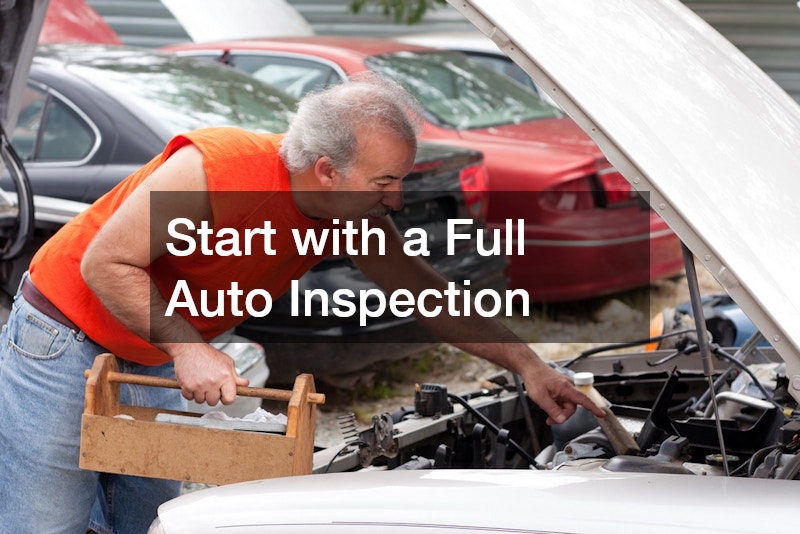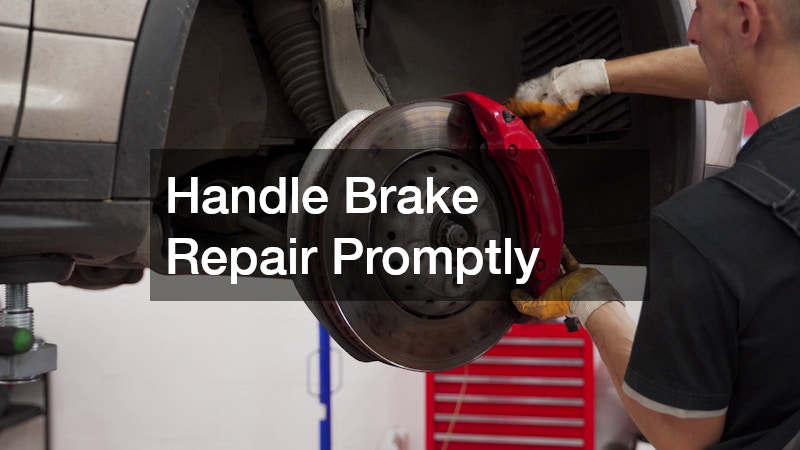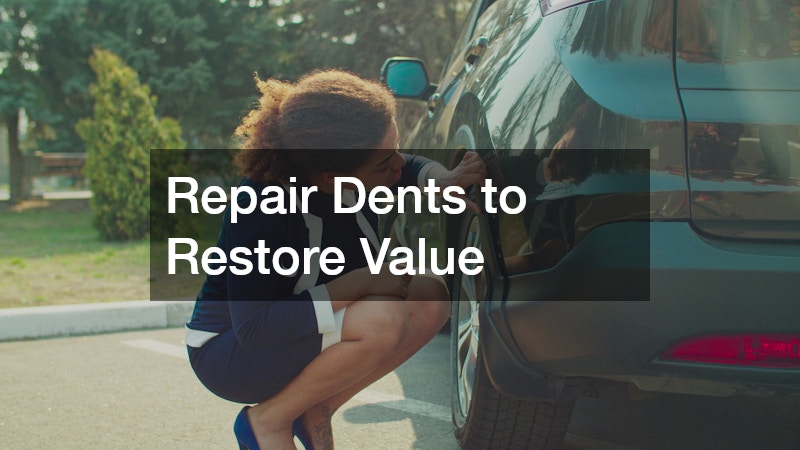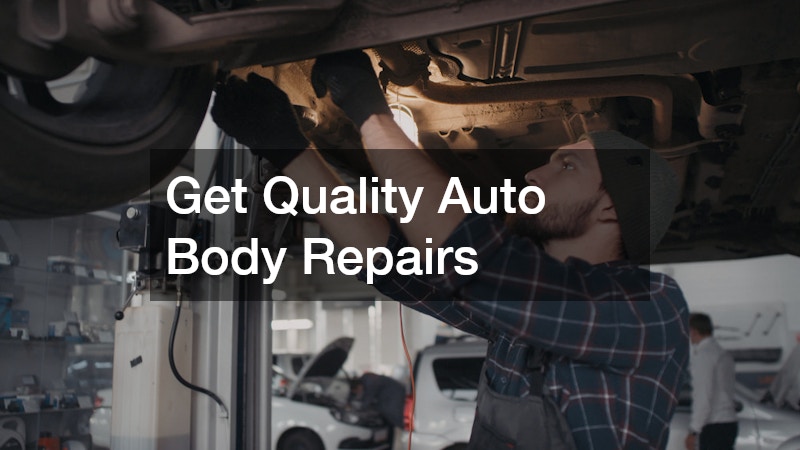Purchasing a used car can be an exciting endeavor, filled with anticipation as new dreams unfold. While used cars offer a cost-friendly alternative to buying new, it’s crucial to remember that these vehicles come with their unique array of challenges and responsibilities. Whether you’re a first-time car owner or someone looking to add another vehicle to your collection, understanding the maintenance needed for a used car is pivotal to ensuring its longevity and performance. By following the right steps after your purchase, you can transform what might be seen as a risky investment into a reliable and resourceful asset. This article will explore several essential actions to take after buying a used car, transforming it into the reliable vehicle you need for your day-to-day life. You’ll find comprehensive insights into inspections, professional services, and maintenance, providing a roadmap towards maximizing your vehicle’s lifespan and performance. Let’s dive into the numerous strategies for maintaining that ‘new-to-you’ car effectively.

Start with a Full Auto Inspection
A comprehensive overview of your newly acquired vehicle starts with a full auto inspection. While it’s common to assume that a recently purchased used car is in top condition, this step ensures that no underlying issues can disrupt your driving experience or diminish your investment’s value. The importance of this step cannot be overstated for anyone pondering what to do after you buy a used car.
During a full inspection, trained professionals will meticulously evaluate all major systems in your vehicle, including the engine, transmission, brakes, and more. This process can help identify any potential weaknesses or components nearing the end of their useful life. Ensuring these elements are in good working condition is vital, as it lays the foundation for a safe and efficient driving experience.
Furthermore, a detailed inspection can provide insight into the car’s history and previous maintenance patterns. This form of due diligence is crucial for making informed decisions about future services needed. For those wondering what do you do after you buy a used car, starting with an inspection helps establish a baseline from which all further actions derive their necessity and urgency. This proactive approach can save you from unexpected breakdowns and costly future repairs.
In addition to mechanical and safety concerns, a full inspection often includes checks for fluid levels, tire condition, battery health, and even frame integrity. These smaller yet significant details offer a broader picture of your car’s overall state. It’s also a great opportunity to ask the technician questions, obtain maintenance tips, and set a realistic schedule for upcoming services. Investing in this initial assessment shows a commitment to responsible ownership and long-term vehicle reliability.
Work with Trusted Auto Repair Professionals
Finding and working with trusted auto repair professionals should be a top priority after purchasing a used car. These experts possess the knowledge and experience necessary to address the specific needs of older vehicles. If you are grappling with what to do after you buy a used car, establishing a relationship with a reliable mechanic is paramount.
Auto repair professionals can provide specialized attention, tailoring their recommendations to fit your vehicle’s history and current needs. Their expertise can be invaluable in offering preventive measures, thereby enhancing the vehicle’s longevity and your overall safety. These professionals can execute complex repairs that amateur mechanics might overlook, ensuring your vehicle operates at its best.
Additionally, a well-established auto repair professional can offer peace of mind through consistent and reliable service. Their reputation plays an integral part in maintaining your vehicle’s health long-term. By consulting with a trusted mechanic, you’ll not only maintain the integrity of your car but also glean essential knowledge about maintaining a used car effectively. This step becomes the cornerstone in your quest to solve the puzzle of what you do after you buy a used car.
Visit a Local Auto Mechanic Shop
After purchasing a used car, it’s essential to visit a local auto mechanic shop. These establishments offer specialized services tailored for used cars that might need immediate or future fixes. Understanding how to utilize these facilities effectively addresses the perennial question: what do you do after you buy a used car?
A local auto mechanic shop provides a charming, personalized experience compared to larger chains. These shops often have mechanics who take the time to know their customers and their vehicles. This personal connection can foster a trusting relationship, ensuring that your vehicle receives tailored care based on regional conditions and your specific driving habits.
Moreover, visiting a local shop supports community businesses, allowing you to contribute to the local economy while receiving top-notch service. Many of these shops have an extensive network within the automotive industry, providing faster and often more cost-effective solutions than their larger competitors. Leveraging the resources of a local auto mechanic shop ensures personalized service that is efficient, effective, and community-centered.

Handle Brake Repair Promptly
Brake repair is a crucial aspect that should be addressed immediately after acquiring a used car. The braking system is one of the vehicle’s vital safety components, making its maintenance non-negotiable. Knowing what do you do after you buy a used car often starts with prioritizing essential systems like brakes.
When brakes are neglected, the system’s performance degrades over time, leading to potential safety concerns for both the driver and passengers. Routine inspections by auto repair professionals can quickly pinpoint any issues within the system, helping to avoid more costly repairs down the line. Repairs made promptly, such as replacing brake pads or addressing fluid leaks, increase your vehicle’s reliability and safety.
Timely brake repair not only enhances safety but also ensures optimal vehicle performance. A well-maintained braking system contributes to smoother stops and starts, enhancing both the driving experience and the vehicle’s functionality. Addressing brake repair promptly helps ensure that your used car fulfills its purpose reliably and consistently.
Replace Worn Parts with Local Auto Parts
Replacing worn components with local auto parts is a sensible action following your used car purchase. This is an effective strategy when contemplating what you do after you buy a used car. Immediate attention to worn parts prevents further damage and unexpected breakdowns, facilitating a more reliable driving experience.
Using local auto parts has both economic and quality benefits. Sourcing parts locally often means easier access and shorter wait times. This can significantly reduce downtime when your vehicle is in need of repairs. Additionally, local parts suppliers often carry high-quality components that may be better suited to your specific driving conditions.
Replacing damaged or worn parts promptly can also enhance the vehicle’s performance and extend its longevity. By opting for local auto parts, you ensure that replacements are easily sourced and matched accurately to the needs of your vehicle. These timely initiations are essential for maintaining the functionality and value of a used car.

Repair Dents to Restore Value
Dent repair is another consideration after purchasing a used vehicle, playing a vital role in maintaining both aesthetic appeal and market value. Knowing what to do after you buy a used car involves understanding the importance of maintaining its exterior condition.
Dents, while often considered minor cosmetic issues, can significantly impact the resale value of a car. Repairing these imperfections not only enhances the car’s appearance but also its marketability. Potential buyers often equate exterior conditions with overall vehicle care, making prompt repairs an investment in the vehicle’s future value.
Effective dent repair requires skilled technicians capable of restoring a vehicle’s surface to its original condition. Choosing reputable and experienced professionals in dent repair can lead to seamless results that bolster your car’s visual appeal. This commitment to maintaining the vehicle’s exterior is crucial in maximizing your investment’s return and satisfaction with the car.
Use a Local Auto Body Shop
After the purchase of a used car, visiting a local auto body shop can be crucial for thorough care and efficient repairs. Contemplating what you do after you buy a used car often leads to searching for services that assure quality support and outcomes.
Local auto body shops provide specialized services that large chains may not offer. These shops are dedicatedly focused on restoring vehicles to their optimal condition, whether through collision repairs or aesthetic touch-ups. Their localized service offerings often result in better familiarity with area-specific demands and challenges.
Furthermore, supporting a local auto body shop contributes to the community’s economy, fostering neighborhood relationships and enhancing trust. The personalized attention you receive can elevate the service experience, ensuring your used car receives comprehensive care tailored to its specific needs. Choosing local artisans within the industry ensures quality, trust, and a more meaningful connection.

Get Quality Auto Body Repairs
Quality auto body repairs are essential to maintaining a used car’s vitality. Tackling what to do after you buy a used car often revolves around ensuring that all components of the vehicle, including its bodywork, are in optimal condition.
Ensuring your car undergoes high-quality auto body repairs enhances its aesthetic appeal and structural integrity. Damaged or ill-repaired bodywork can diminish the car’s value and safety. High-quality services provide long-term benefits, as meticulous repairs sustain the vehicle’s market value.
Auto body repairs also play a critical role in maintaining safety standards. Proper repairs ensure that the vehicle’s frame and supporting structures remain intact and functional, especially after any minor accidents or impacts. Professional auto body repair services uphold these standards, guaranteeing that a used car continues to perform safely and efficiently.
Keep Up with Regular Auto Repair Services
The consistent application of auto repair services is pivotal in preserving a used car’s reliability and performance. Understanding what to do after you buy a used car involves adhering to a regular maintenance schedule for all its mechanical components.
Regular auto repair services encompass routine checks of the engine, transmission, brakes, and other critical systems. These services are preventative, identifying and addressing potential issues before they escalate into significant problems. This proactive approach not only ensures safety but also extends the vehicle’s lifespan.
Furthermore, adherence to a regular service schedule contributes to the retention of the car’s resale value. Prospective buyers often prefer vehicles with well-documented maintenance histories, contributing to trust and perceived value. Regular services encapsulate a commitment to vehicle care, benefitting your car now and in the future.
Build Long-Term Value Through Maintenance
Building long-term value in a used car is achievable through consistent, attentive maintenance practices. This dedication helps answer the crucial question of what do you do after you buy a used car, emphasizing preventive care over costly, reactive measures.
Regular maintenance not only safeguards the car’s current operational status but also paves the way for future savings. Proactive identification and resolution of minor issues prevent the emergence of costly, significant failures. This practice creates a sustainable cycle of efficiency and reliability, enhancing the vehicle’s overall utility.
Moreover, long-term maintenance directly correlates with both personal satisfaction and a higher resale value. A well-maintained vehicle signals responsible ownership, enticing potential buyers when it’s time to sell. This long-term outlook rewards both the owner and future users, exemplifying the benefits of consistent, high-quality care. It also reflects a deeper respect for the vehicle’s role in your daily life—whether it’s commuting, road-tripping, or supporting your family’s transportation needs. Regular upkeep helps avoid unexpected breakdowns, costly emergency repairs, and overall deterioration. In the end, taking care of your car is about protecting both your financial investment and your everyday peace of mind.
The journey of owning a used car begins with understanding the myriad of steps needed to maintain its longevity and reliability. From the initial comprehensive inspection to consistent maintenance practices, each aspect lays the groundwork for sustained vehicle performance. Addressing mechanical needs through trusted auto repair services ensures operational integrity, while aesthetic and structural repairs enhance market value and safety.
Your used car’s health relies heavily on proactive measures—timely brake repairs, component replacements, and regular auto body and mechanical checks are indispensable. Each endeavor you undertake serves as an investment in the car’s future performance and resale potential. By ensuring a methodical approach to maintenance, driven by professional expertise and community-based support, you fortify your used car’s standing as both a reliable companion and a worthy investment.
Understanding what you do after you buy a used car is key to unlocking its full potential. Through detailed care and consistent vigilance, your vehicle can deliver exceptional service, withstand time, and provide significant utility. This lifelong commitment to care springs from valuing both the vehicle and the life experiences it facilitates.



